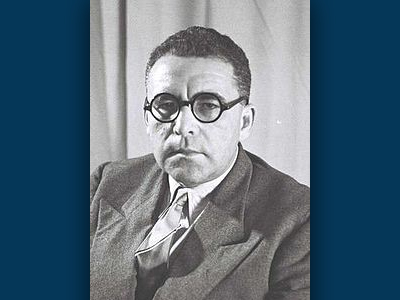
February 12, 1958
The first of eleven Basic Laws is issued by the Israeli parliament. Basic Laws were originally intended to form the basis of an Israeli Constitution, but the constitution remains unwritten. This Basic Law dealing with the Knesset is passed by a vote of 96-0.
The Basic Laws emanate from Israel’s inability to agree on and pass a constitution. After more than a year of debate, the First Knesset adopted a compromise. The compromise, known as the “Harari Resolution,” sponsored by Knesset Member Yizhar Harari (shown in the photo), stipulated that instead of a single document, the “constitution” of Israel would be composed of a series of Basic Laws which would be created over time by a special law committee and approved by the Knesset. The Harari Resolution stated, “The First Knesset instructs the Constitution, Law and Justice Committee to prepare a draft State Constitution. The constitution will be built chapter by chapter, in such a way that each will constitute a separate Basic Law. The chapters shall be presented to the Knesset when the committee completes its work, and all the chapters together shall comprise the Constitution of the State.” The Draft Constitution was prepared but was not introduced or passed by the Knesset. In fact the draft constitution was published in several places, including the New York Times on December 10, 1949.
According to the Harari Resolution, the Knesset began to create and pass laws that outlined and defined government behavior and guided policies on society, population and the economy. It was contemplated that at some point in the future, when the Basic Laws are completed, an introduction would be added and they would form the constitution of Israel. The first “chapter” of this constitution thus became the Basic Law: The Knesset.
This Basic Law does not define the powers of the Knesset; it outlines its rules and functions, duties of its members, election procedures and eligibility. In addition, the law establishes Jerusalem as the seat of the Knesset and sets the number of ministers at 120. There have been ten amendments added to the law since its passage in 1958. Of note is Amendment 9, which was passed on July 31, 1985. This amendment states that a political party may not participate in elections if it denies the existence of the State of Israel as the state of the Jewish people, the democratic nature of the state, or if the party incites racism.
